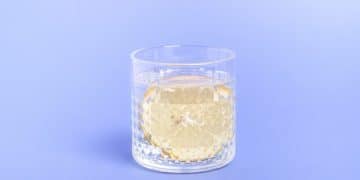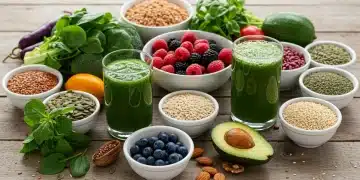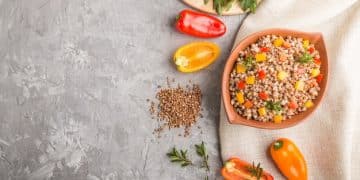Hydration tips for better overall wellness

Staying hydrated is crucial for wellness, as it supports bodily functions and prevents dehydration; aim for at least 8 cups of water daily and include hydrating foods like fruits and vegetables.
Discover how hydration tips for better overall wellness can transform your health and daily routines. Have you ever considered how staying hydrated impacts your energy and mood? Let’s dive into practical tips that can help you stay refreshed and invigorated.
Understanding the importance of hydration
Understanding the importance of hydration is crucial for maintaining overall health and wellness. Our bodies are made up of about 60% water, making it essential for various bodily functions. Proper hydration supports everything from digestion to circulation, and even affects our mood and energy levels.
Why Hydration Matters
When we are adequately hydrated, our bodies can operate efficiently. Dehydration can lead to fatigue, headaches, and poor concentration. It is surprising how something as simple as drinking water can improve mental clarity and physical performance.
Key Benefits of Staying Hydrated
- Improved digestion and nutrient absorption
- Regulation of body temperature
- Enhanced physical performance during exercise
- Better skin health and appearance
In addition to these benefits, staying hydrated can also help to prevent illnesses. For instance, drinking enough water can support kidney health by helping to flush out toxins. Furthermore, when you are well-hydrated, you may notice a reduction in joint pain, as water helps lubricate joints.
Listening to your body can also guide your hydration needs. Thirst is an important signal, but it’s not the only one to consider. Pay attention to how you feel and how your body reacts to various levels of hydration.
Practical Hydration Tips
It’s easy to forget to drink enough water, especially with busy lifestyles. Here are some practical tips:
- Carry a reusable water bottle with you at all times.
- Set reminders on your phone to take water breaks.
- Infuse your water with fruits for added flavor.
- Enjoy hydrating foods like watermelon and cucumbers.
By integrating these tips into your daily routine, you can easily increase your hydration levels. Understanding the importance of hydration not only improves your energy but also enhances your overall well-being.
Best sources of hydration

When considering the best sources of hydration, it’s important to recognize that water isn’t the only option. Many foods have high water content and can significantly contribute to our daily hydration needs. Staying hydrated is easier than you think!
Top Hydrating Beverages
First, let’s explore some drinks that boost hydration. Water is essential, but other beverages can also help:
- Coconut water: A natural source rich in electrolytes.
- Herbal teas: A variety of flavors that hydrate without caffeine.
- Infused water: Adding fruits or herbs enhances both flavor and hydration.
These options not only refresh but also provide extra nutrients for your body. Incorporating them into your routine can help you stay hydrated throughout the day.
Hydrating Foods
In addition to drinks, many foods offer excellent hydration. Here are some fantastic choices:
- Watermelon: Over 90% water and perfect for hot days.
- Cucumbers: Crisp and refreshing with high water content.
- Oranges: Juicy and packed with both water and vitamin C.
These foods can be enjoyed as snacks or added to salads, making them versatile options for keeping hydrated. Eating these foods can make a significant difference in your hydration levels.
Remember, best sources of hydration can vary based on individual preferences and dietary needs. If you’re exercising, you may need more fluids, so be mindful of your body’s signals. By combining various hydrating foods and drinks, you can meet your hydration goals comfortably.
Hydration strategies for daily wellness
Implementing effective hydration strategies for daily wellness can significantly improve your health and energy levels. Staying mindful of your fluid intake throughout the day helps support various bodily functions, from digestion to cognitive performance.
Set Daily Goals
One of the first steps in your hydration journey is to set clear daily goals. Aim for at least 8 cups of water per day, which can vary based on activity levels and climate. Tracking your water intake can motivate you to stay on target.
Incorporate Hydration into Your Routine
Creating specific habits can make hydration easier. Consider drinking a glass of water first thing in the morning, and keep a bottle with you throughout the day. Try these practical tips:
- Use a marked bottle to track your intake.
- Drink a glass of water before each meal.
- Opt for a drink during your breaks at work.
By embedding these habits into your schedule, you can effortlessly boost your hydration levels. Sometimes, just having water visible serves as a great reminder.
Flavor Your Water
If plain water doesn’t excite you, flavoring it can make it more enjoyable. Adding fresh fruits, herbs, or even a squeeze of lemon can enhance taste without extra calories. You can infuse water overnight for a delicious and refreshing drink the next day.
Also, consider diversifying your sources of hydration. Alongside water, include other options like herbal teas or coconut water to keep it interesting. The key is to stay creative and find what you enjoy while maintaining hydration. Remember, small changes in your daily routine can lead to significant improvements in how you feel.
Signs of dehydration and solutions

Recognizing the signs of dehydration is important for maintaining your overall health. When your body loses more fluids than it takes in, various symptoms can show up, signaling that it’s time to rehydrate.
Common Symptoms of Dehydration
Some common signs include:
- Dry mouth and bad breath
- Fatigue or dizziness
- Dark yellow urine
- Headaches
If you notice these symptoms, it’s essential to take action quickly. Ignoring dehydration can lead to more serious health issues.
Solutions to Stay Hydrated
Fortunately, there are many easy ways to combat dehydration. Here are some effective solutions:
- Drink water regularly throughout the day.
- Include hydrating foods in your meals, such as fruits and vegetables.
- Monitor your urine color; aim for light yellow.
Additionally, if you are active or it’s a hot day, consider drinking drinks with electrolytes to replenish lost fluids. Even mild dehydration can affect your mood and concentration, so taking these steps can enhance your overall wellness.
Staying ahead of dehydration is simple with a little awareness. By recognizing the signs early and responding promptly with these hydration solutions, you can keep your body functioning optimally. Remember, your health is worth the effort!
In conclusion, staying hydrated is essential for overall wellness. Recognizing the signs of dehydration and understanding the best sources of hydration can help you maintain your health. By incorporating simple hydration strategies into your daily routine, you can ensure that your body functions at its best. Remember to listen to your body and drink water throughout the day, along with enjoying hydration-rich foods. Your overall health will thank you for it!
FAQ – Common Questions About Hydration and Wellness
How much water should I drink each day?
Aim for at least 8 cups of water daily, but adjust based on your activity level and climate.
What are some signs of dehydration?
Common signs include dry mouth, fatigue, dizziness, and dark yellow urine.
Can foods help with hydration?
Yes, fruits like watermelon and cucumbers are excellent sources of hydration.
What are effective hydration strategies?
Set daily water goals, carry a water bottle, and incorporate hydrating foods and beverages throughout the day.





